Frédérik Doyon
Professor in Landscape Ecology and Forest Management
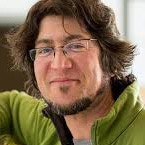
819-595-3900 poste 2930
Research themes
Ecology of disturbances (gaps), characterization of the spatial structure of the landscape, ecosystem functioning, modeling, airborne LiDAR, ecosystem forest management, carbon dynamics, and adaptations to climate change, socioecology of forest management.
Education
- 1998 : Postdoctoral Fellow in Biodiversity Modeling – Lakehead University
- 1996-2000: PhD in Environmental Sciences – Université du Quebec à Montréal
- 1990-1992: Master of Science – Plant Ecology – Université de Montréal
- 1985-1989: Bachelor of Science – Forestry – Université Laval
Description of research
My main research achievements revolve around the characterization and understanding of the spatial and spatio-temporal dimensions of the natural processes of forest ecosystems, particularly those of the temperate forest biome. Landscape ecology is the theoretical framework on which the development of my working hypotheses is based. Several of these hypotheses also aim to understand the trans-scale phenomena, involving processes passing from the tree to the region, through the plant community and the landscape. I use the advanced technologies of geomatics and remote sensing, such as LiDAR, to carry out my experiments, and I use modeling as a tool for exploration, hypothesis formulation and prediction. Since I often work with partners (industry, community, government), I think it’s important that the research results can be applicable and relevant to these partners so I am interested in developing applications and participating on committees to see to this transfer of knowledge.
-
add removeKey publications
- Senécal, J.-F., Doyon, F. & Messier, C. 2018. Management implications of varying gap detection height thresholds and other canopy dynamics processes in temperate deciduous forests. Forest Ecology and Management 410 : 84-94.
- Després, T., Asselin, H., Doyon, F., Drobyshev, I. & Bergeron, Y. 2016. Gap dynamics of late successional sugar maple–yellow birch forests at their northern range limit. Journal of Vegetation Science 28(2) : 368–378.
- Bissonnette, J.-F., Dupras, J., Doyon, F., Chion, C., & Tardif, J. 2017. Perceptions of small private forest owner’s vulnerability and adaptive capacity to environmental disturbances and climate change: views from a heterogeneous population in Southern Quebec, Canada. Small-scale Forestry 16(3) : 367-393.
- Doyon, F., D. Gagnon & J.-F. Giroux. 2005. Effects of strip and single-tree selection cutting on birds and their habitat in a southwestern Quebec northern hardwood forest. Forest Ecology and Management 209(1-2) : 101-106.
- Van Damme, L., J. Russell, F. Doyon, P.N. Duinker, T. Gooding, K. Hirsch, R. Rothwell & A. Rudy. 2003. The development and application of decision support systems for sustainable forest management on the Boreal Plain. Journal of Environmental Engineering and Science 2 : S23-S34.
- Uprety, Y., Asselin, H., Bergeron, Y., Doyon, F. & Boucher, J.-F. 2012. Contribution of traditional knowledge to ecological restoration: practices and applications. Ecoscience 19 (3) : 225-237
-
add removeProjects
Forêt S’Adapter
Forêt S’Adapter/Forest Adapt is a research program funded by NSERC in collaboration with stakeholders from the Upper St. Lawrence Valley, Quebec. The aim of this research is to lay the foundation for adapting silviculture in the deciduous forests of southern Quebec. A first set of projects will assess the vulnerability of forests to different stresses and threats, such as drought, air pollutants, invasive species and insect epidemics. The second phase of the project aims to define a means for recognizing the adaptability of forest communities to these stresses and to integrate this assessment of adaptive capacity into silvicultural plans. Finally, adaptive silviculture experiments will be performed in which the physiological vigor of the trees is followed. Simulation results from a CG-sensitive model will be presented to illustrate the robustness that is at the heart of this approach.
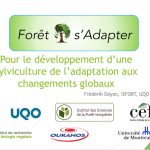
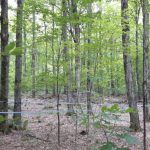
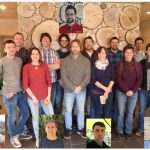
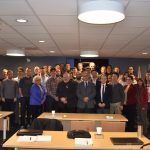
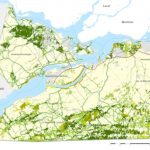
 Evaluating the Effect of Residential Firewood Extraction on the Carbon Budget of Canadian Forests
Evaluating the Effect of Residential Firewood Extraction on the Carbon Budget of Canadian ForestsResidential heating accounts for almost two-thirds of energy use in Canadian homes. The effect of firewood production on the carbon footprint is poorly known. The objectives of this project are 1) to document the firewood extraction sector from the point of view of a) the extracted biomass and b) extraction practices, taking into account the land use, and extraction regions, and 2) to evaluate the effect of firewood extraction on the carbon sequestration capacity of forests using the modeling tools in different pilot regions.
Identifying Barriers to Implementing Optimized Forest Ecosystem Management Plans in Deciduous Forests
Principal Investigator: Osvaldo Valeria (UQAT)
The new regime has brought a major change, the introduction of the concept of Forest Ecosystem Management (FEM), which is disrupting traditional forest planning. We have observed that since the integration of ecological issues, there are notable differences between planning and implementation. The risk of delayed delivery of forest products, a lack of access to areas and increased non-compliance with planning measures and several other factors can all affect the actual implementation of management plans. Consequently, the results may be quite different from what was planned in the management strategy. We propose the following: 1) to evaluate, using Patchworks software, the effect of silvicultural treatments and their deployment in the forest with an FEM approach based on ecological and financial indicators; 2) to construct risk functions associated with the vulnerability of the road network for a forest area and take this into account during FEM planning; 3) to identify the magnitude of the gap between when the plans are developed and when they are finally implemented; and 4) to build a robust optimization tool to integrate the risks associated with a forest road network vulnerability and uncertainty measures related to the management of hardwood forests.
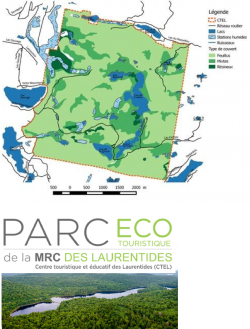
Participatory simulation platform for adapting multipurpose forest management to global changes
This is a socio-ecological modeling project that is a continuation of an initiative started on the public territory of the Laurentian Tourist and Information Center in (Quebec), in partnership with the Laurentian Regional County Municipality (RCM) and the Institut des Territories, whose goal is to develop its territory sustainably and to reconcile its many uses. The aim of this project is to calibrate, test and validate an innovative consultation support tool to facilitate exchanges between all actors and promote an understanding of the different needs, preferences and thresholds of acceptability upstream of a project. This tool is an interactive role-playing computer game (also referred to as a serious game or participatory simulation) to immerse the actors of the targeted territory in virtual scenarios highlighting the issues (e.g. situations of compromise, management of uncertainty) relating to the project. The platform is composed of two main modules, ecological dynamics and social dynamics.
-
add removeStudents and postdoctoral fellows
Étudiants actuels
Stagiaires postdoctoraux
Doctorat
- Martin Duelpech
- Gagné Caroline
- Annie Montpetit
Maîtrise
Étudiants diplômés
Maîtrise
- 2016-2017 Cynthia St-Amour (Abandon)
- 2015-2018 Romain Trégaro
- 2011-2014 Élodie Plassin
- 2009-2012 Rudiger Markgraf
- 2009-2011 Édith Bégin, Jérémie Poupart-Montpetit
- 2009-2010 Alexis Joubert (Abandon)
- 2008-2011 Jean-François Sénécal
Doctorat
- 2014 Lise Jaton (Abnandon)
- 2012-2017 Jean-François Sénécal
- 2011-2015 Tiphaine Després
- 2009-2011 Vincent McCullough (Abandon)
Post-Doctorat
- 2013-2016 Clément Chion
- 2013-2014 Yadav Uprety
- 2012-2013 Fernando Cabral
- 2010-2014 Dominic Cyr
- 2011-2012 Georgina O’Farill
Stagiaire internationaux (3 mois et plus)
- 2010-2011 Claire Binnert (AgroParisTech-ENGREF, Nancy, France)
- 2011 Éric Higgins (Lakehead University, Thunder Bay, Canada)
- 2011-2012 Olivia Marois (AgroParisTech-ENGREF, Nancy, France)
- 2016 Alexandre Roques (SUPAGRO, Montpellier, France)
- 2017 Marie Gauvreau (AgroParisTech-ENGREF, Paris, France)
- 2017 Antoine Hénault (Université de Sherbrooke)
-
add removeAvailable projects (coming soon)
arrow_backBack to Team
